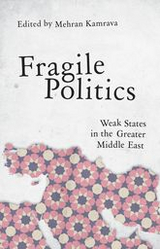
Interventionism and the Fear of Urban Agency in Afghanistan and Iraq
Esser, Daniel E.External Publications (2016)
in: Mehran Kamrava (ed.), Fragile Politics: Weak States in the Greater Middle East, Oxford: Oxford University Press, 81–97
ISBN: 978-0-19-024621-1
DOI: https://doi.org/10.1093/acprof:oso/9780190246211.003.0004
Information
This chapter examines how the underlying discourse on statist governance dovetails with an increasingly influential depiction of cities in developing countries as breeding grounds for organized violence and terrorism. It juxtaposes these two converging discourses with an investigation of the extent to which sub-state collective action in cities in Afghanistan and Iraq factored into hegemonic strategies for both war-making and state-building. This chapter argues that the determination of “state failure” is primarily a political rather than an analytical process and that its application has altered the prospect of state sovereignty, especially in the Greater Middle East where U.S. energy and security interests are most acutely at stake. As a consequence, democracy suppression rather than democracy promotion characterized the early period of both occupations in Afghanistan and Iraq, and was justified by a characterization of cities as cradles of instability that threatened the vision of unified national governments as key components of the liberal international order.

